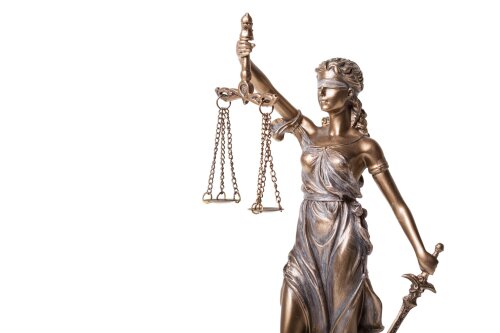Best Land Use & Zoning Lawyers in Blumenau
Share your needs with us, get contacted by law firms.
Free. Takes 2 min.
Free Guide to Hiring a Real Estate Lawyer
List of the best lawyers in Blumenau, Brazil
About Land Use & Zoning Law in Blumenau, Brazil
Land use and zoning law in Blumenau plays a key role in how the city develops, preserves its environment, and organizes urban activities. The laws and regulations define where and how different types of property use-such as residential, commercial, industrial, or mixed-use-are permitted. These rules are designed to ensure sustainable growth, the protection of public interest, the value of property, and quality of life for residents. Blumenau’s legal framework is shaped by local municipal law and complemented by state and federal guidelines, making it essential for individuals and businesses to understand specific local requirements before beginning any construction, renovation, or land-related transaction.
Why You May Need a Lawyer
Engaging a lawyer experienced in land use and zoning in Blumenau is highly recommended when facing situations such as:
- Buying, selling, or developing property with zoning restrictions
- Applying for construction or renovation permits
- Disputes with neighbors or the municipality about property boundaries or permitted uses
- Appealing zoning decisions or fighting administrative infractions
- Navigating environmental constraints or heritage protections
- Seeking changes in zoning classification for a property
Local Laws Overview
In Blumenau, land use and zoning are primarily governed by the city's Plano Diretor Municipal (Municipal Master Plan), along with complementary zoning laws and environmental regulations set by the municipality. Key aspects include:
- Zoning maps: Identify which zones allow residential, commercial, industrial, or mixed use
- Land parceling regulations: Define lot sizes, setbacks, and street layouts
- Construction codes: Provide building standards for safety, accessibility, and compatibility with urban infrastructure
- Environmental protections: Include limitations regarding preservation areas, watercourses, and flora
- Historic and cultural preservation: Protect buildings and sites of architectural or historical significance
- Administrative procedures: Establish permit processes, appeals, and public participation mechanisms
Frequently Asked Questions
What is zoning and why does it matter in Blumenau?
Zoning refers to the system of dividing the city into zones where specific land uses are permitted or restricted. It controls urban growth, helps manage infrastructure, and protects community interests.
How can I find out the zoning classification of my property in Blumenau?
You can consult the municipal zoning maps available at the city’s Urban Planning or Land Use Departments. Lawyers and architects can also assist in interpreting these classifications.
Do I need a permit to renovate or build on my property?
Yes. Most construction, expansion, or significant renovation projects require official approval through building permits issued by the municipal government.
What are common issues that can occur with zoning in Blumenau?
Typical issues include unpermitted construction, changes of land use without approval, encroachment on environmental protection areas, or disputes due to unclear property boundaries.
What should I do if my permit application is denied?
You have the right to appeal administrative decisions. A lawyer can advise on the best strategy for appeal, including presenting supporting documentation and representing your interests in hearings.
Can I request a change in zoning for my property?
Yes. Property owners can apply for zoning reclassifications or exceptions, but these requests are subject to review, public hearings, and must be justified within the legal and urban planning framework.
How are environmental regulations enforced in land use matters?
Environmental regulations are enforced by municipal and state authorities. Projects near rivers, protected forests, or in preservation areas are subject to extra scrutiny and often require environmental licenses.
What happens if I violate zoning laws in Blumenau?
Violations can lead to fines, orders to halt or demolish construction, and, in some cases, criminal proceedings. Early legal advice is vital to resolve noncompliance issues.
Are there areas in Blumenau with special restrictions?
Yes. Certain districts have restrictions due to cultural heritage protection, risk of flooding, or environmental preservation, which may limit use or construction options.
How can legal counsel assist in land use disputes?
A lawyer can analyze documents, represent you in negotiations or administrative hearings, and file legal actions if necessary to defend your rights and interests.
Additional Resources
For help with land use and zoning matters in Blumenau, consider contacting:
- Secretaria Municipal de Planejamento Urbano (Urban Planning Department) - Provides official zoning information, permits, and guidance for urban development.
- Defensoria Pública do Estado de Santa Catarina - Assists those who qualify for free legal aid in administrative and judicial matters.
- Ordem dos Advogados do Brasil (OAB) - Subseção Blumenau - Refers individuals to qualified lawyers experienced in land and zoning issues.
- Instituto do Patrimônio Histórico e Artístico Nacional (IPHAN) - For issues concerning cultural and historical property protection.
Next Steps
If you need legal assistance regarding land use or zoning in Blumenau, start by gathering all relevant documents such as property deeds, past permits, and any correspondence with local authorities. Clearly identify your objectives, whether it is building, buying, selling, or resolving a dispute. Contact a lawyer with experience in the field for personalized advice. For simple questions about procedures or documentation, the city’s Urban Planning Department is a helpful starting point. Acting early and seeking expert guidance is the best way to protect your interests and ensure a smooth process.
Lawzana helps you find the best lawyers and law firms in Blumenau through a curated and pre-screened list of qualified legal professionals. Our platform offers rankings and detailed profiles of attorneys and law firms, allowing you to compare based on practice areas, including Land Use & Zoning, experience, and client feedback.
Each profile includes a description of the firm's areas of practice, client reviews, team members and partners, year of establishment, spoken languages, office locations, contact information, social media presence, and any published articles or resources. Most firms on our platform speak English and are experienced in both local and international legal matters.
Get a quote from top-rated law firms in Blumenau, Brazil — quickly, securely, and without unnecessary hassle.
Disclaimer:
The information provided on this page is for general informational purposes only and does not constitute legal advice. While we strive to ensure the accuracy and relevance of the content, legal information may change over time, and interpretations of the law can vary. You should always consult with a qualified legal professional for advice specific to your situation.
We disclaim all liability for actions taken or not taken based on the content of this page. If you believe any information is incorrect or outdated, please contact us, and we will review and update it where appropriate.











